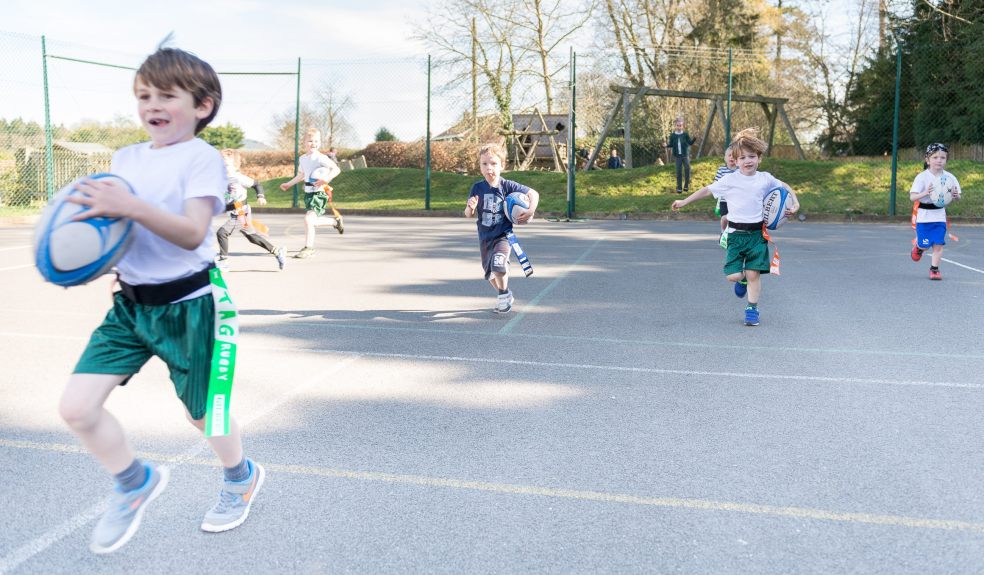
After school clubs can help disadvantaged pupils
The founder of a rugby-based after school club says the findings of a new report highlight the positive impact clubs can have on pupils, particularly from less wealthy backgrounds.
Tracey Alison, who set up Minis Academy after the success of Rugby World Cup 2015 in the city, says the Nuffield Foundation-funded report underlines the importance in the provision of affordable after-school clubs in the Exeter area.
She said: “In particular, the outcomes here show that after-school clubs can inspire children from disadvantaged backgrounds towards higher achievement, which is an affirmation of what we’re seeking to achieve with Minis Academy.
“The ethos behind Minis is to promote the social and health benefits of team sport, introducing primary school children to character-building values like passion, respect, discipline and solidarity,” explained Tracey.
The report says that there is a range of positive benefits for children taking part in after-school clubs, such as access to “enriching new experiences”. It also finds that after school clubs can help children to succeed and foster self-esteem and confidence, as well as improving fitness and supporting the academic curriculum; children attending once a week had, on average, achieved a 1.7 point higher actual KS2 score than predicted.
The research considered how disadvantaged children are less likely than other to have access to activities outside of school including music, tuition and sport, concluding that this was due not just to fees, but also the cost of travel, uniforms and associated kit. After school clubs are an exception to this disparity, showing no difference in take-up between disadvantaged and other children.
This is even more likely where schools understand the advantages and step up to facilitate inclusion. PE teacher and sports co-ordinator Sarah Stanbury from Willowbrook Primary, which offers Minis Academy as an after school option, said: “At Willowbrook we know that after-school clubs promote physical and mental health. We are really proud that we have 23 clubs across the week but there are times when teachers are in meetings and the children shouldn't miss out.
“We have used our sports premium to provide clubs on these days. All of our clubs are free and this encourages high participation for all children with different economic backgrounds. The children build new relationships with different adults from school setting and children in different classes.”
The results of the report indicate that after school clubs in general are non-exclusive, with children from less wealthy homes involved as much as those from wealthier backgrounds.
“Having an after school club available on site at schools is important to parents whose circumstances mean they find transporting their children to out of school activities difficult, not just because of cost but also demands of work, caring for other children or health issues,” said Tracey.
Minis Academy was co-founded by former Exeter Chiefs player Nic Sestaret and coaching is delivered by Exeter Chief’s Community Coaches. Andrew Dudley, Exeter Chiefs Community Delivery Manager said: ‘It’s great to get some data to support what Tracey and Nic have always known. They are the driving force behind Minis Academy, and one of the main reasons we wanted to be a part of the project was how passionately they spoke on the development of children through after school programmes.
“As rugby coaches, we often just look at rugby outcomes, whether our participants’ rugby skill has improved, so it’s great to know that we are making a difference inside the classroom, as well as outside of it!”
Research for the new report was based on 6,400 children from 10 primary schools, four in the North East and six in the South East and was carried out by NatCen and Newcastle University.














